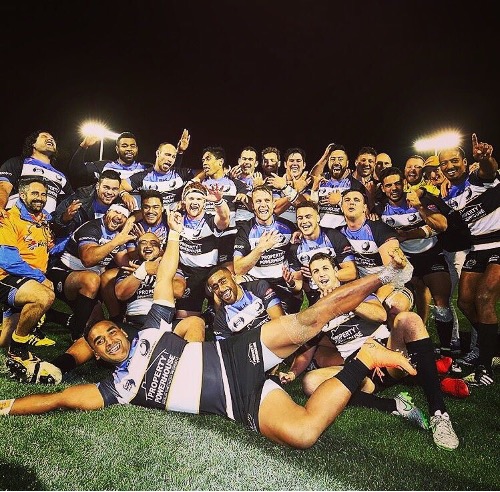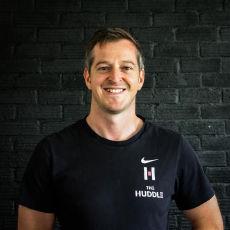By Matt Goodman

On Thursday 7th November we were fortunate to host Emidio Pacecca (Mids) for a Q&A session with our Pitch-side Physiotherapy students & MSc Sports & Exercise Medicine students. Mids has a natural ability to talk & within minutes of us starting it was clear the slides he’d put together weren’t going to be required & a truly insightful Q&A where Mids fielded questions honestly from the audience would ensue.
Currently working as a consultant for AC Milan Football, Mids started by explaining his journey into elite sport which started with a grounding in a hospital setting, initially in Australia and then a move to the UK see what London had to offer for 2 years (with some bar work in an Italian ski resort). Next move was a postgraduate MSc in Sports Physiotherapy at Curtin University (Perth, Western Australia) whilst juggling a full-time job in private practice and working in the semi-professional Australian Rules Football League (AFL). Upon completion of his MSc Mids did some lecturing in Sports Rehab & strength & conditioning at Edith Cowan University and in 2010 was offered an AIS job in Northern Italy (the gap year in a ski resort paid off). After the London 2012 games, Mids moved back to Perth to work in Super Rugby with Western Force as Head of Medical for 4 years. With a passion for AFL & having played it as a youngster he moved to Melbourne & took up a Head of Medical role with Carlton AFL for 4 years. The next move was to Boston to work with the Patriots for 5 years in the NFL leading up to his current role with AC Milan.

The burning question from the audience focused on “what attributes would you look for when considering a physio applying for a sports physiotherapy role?” “Personally, interpersonal skills, good person, growth mindset, reliable, honest, work ethic, are they going to relate to athletes & personal recommendation goes long way.” Confidence is important but arrogance can be a challenge, reflecting on his own experiences, drawing a fine line & have the humility to be honest & know that you can never know everything. The skills can be developed through mentorship. Seeing that applicants have invested their time in gaining experience in sports (voluntary or poorly paid) to gain clinical mileage with limited budget & how to manage your time efficiently.
The next question was around the biggest challenges in working in sport. “Time, where do I invest my time.” Time management & where you put your time & establishing work-life balance & avoid burnout. Ensure you take time off to reflect, to become innovative. Mids has found cycling in the Italian Mountains has enabled him to answer some of the questions he’s been facing that week. Dealing with end of season, bombing out during the semi’s or finals can be tough, going from 100hr weeks, running off adrenaline to nothing & that can be tough. Routine is key & ensuring having a schedule for post season can be really useful. Learning when to say no & when it’s appropriate.

How do you manage change culture/outdated practices within in a team? Mids explained in his experience having the coaches support is essential & in later years it’s been a non-negotiable for any role he’s has taken. Changing cultures in sport can be challenging, especially when the margins of success are often very slim (often less than 1% between teams at the top & those at the bottom of the division). Breaking habits & challenging outdated practices can always be challenging, particularly if it appears to improve performance despite evidence to support it. Mids approach has been to employ evidence-based practice (EBP) & empower both athletes, coaching staff & the performance team with knowledge. In later years as a Head of Medical, he has flown international experts in to deliver training & innovation for the high-performance staff & players on the latest EBP. One of the key areas has been around the management of tendon issues & over time players have moved away from passive adjuncts & previous engrained beliefs that lack evidence and moved towards more active, exercise based conditioning programs with has led to a reduction in injuries. “Once the senior leadership group buy into the changes and find success, it doesn’t take long to filter down”. If staff & athletes can feel & see the benefit on and off the field if the changes you introduce it tends to snowball.
These were just a few of the insights Mids shared with the audience & we look forward to future discussions as its always though provoking, frank and honest.

M.D.Goodman.1@bham.ac.uk
